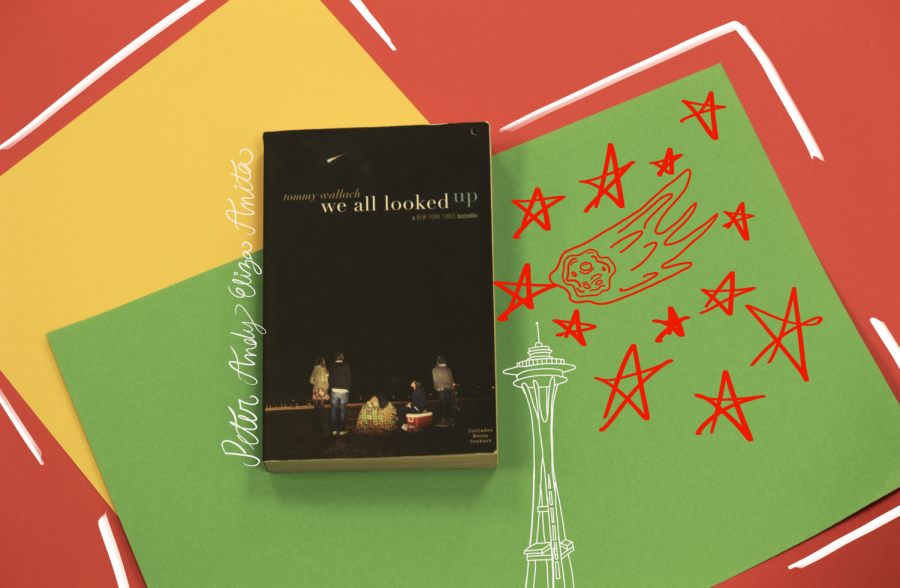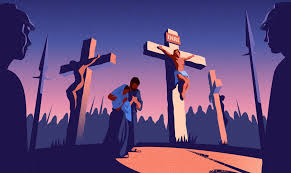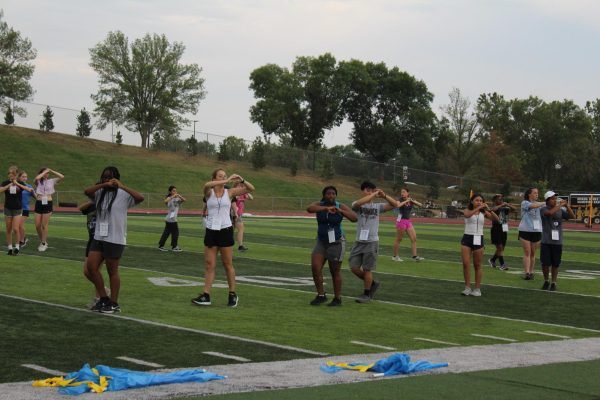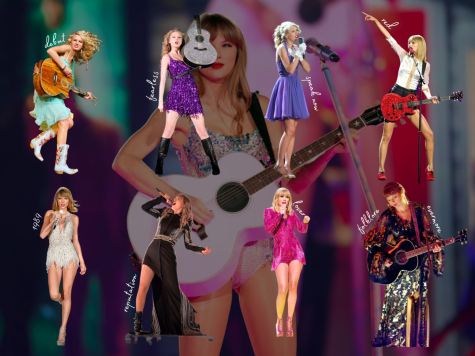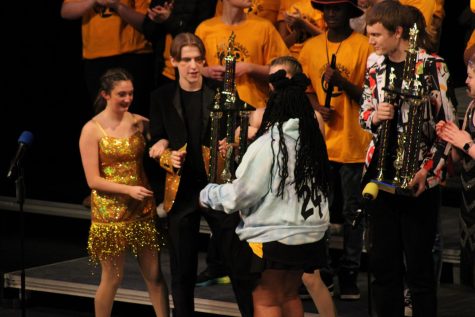We All Looked Up: A Glimpse Into Apocalypse Life for Teenagers
Picture this: You look up to the sky one night and see a new bright, blue star, only for the president to announce it’s actually an asteroid. There’s a 66.6 percent chance that the asteroid, headed straight towards Earth, will destroy all living life. Everyone is given two months to complete their bucket lists until a force more powerful than one billion nuclear bombs hits. What would you do before the potential end of the world? Would you continue life as you know it or would you become someone that you couldn’t be before?
We All Looked Up, written by Tommy Wallach, follows four high school seniors on their journey of finding themselves after discovering the news of asteroid Ardor.
The four characters all follow the basic stereotypes that are made of high schoolers. Imagine if The Breakfast Club was set during the weeks leading up to an apocalypse. There’s Peter, your high school basketball player, who has devoted his life up to this point to the sport. Anita, the high achieving scholar with strict parents that won’t let her follow her passion of being a musician. Eliza, the artsy photographer that has a bad reputation of sleeping around. And then you have Andy, the local druggy/slacker/singer who skates instead of attending school. Before Ardor, these four never interacted with each other, willingly, as they only stayed with their stereotypical cliques.
During the first week, each teenager deals with the news differently, sticking to their regular routine of life. Eliza deals with her father that is stuck in the hospital with terminal cancer and is constantly wondering how her life would’ve been if her mother stuck around. Peter is trying to get the attention of Eliza after their quick fling in junior year, even though he has a girlfriend. Anita struggles with not being able to sing because her parents are still forcing her to focus on school. And Andy is dealing with the terrible thought of dying as a virgin.
Set in present-day Seattle, the city finds itself in shambles. Following the news, hell breaks loose. Cities are overthrown by outraged citizens, looking to blame anyone for what is to happen. People stop going to work, food becomes rationed, crimes being committed with no consequences. It’s like The Walking Dead but with no zombies. Stores, restaurants, and even the Seattle Police Department shut down.
Towards the half month mark, the teenagers began to shake up their reputations. Playing basketball becomes pointless for Peter, and he dumps his girlfriend, becoming more desperate to gain Eliza’s attention. Anita goes against her parent’s rules and starts to sing at a local bar, gaining quite the attraction for her natural talent, as well as Andy’s attention, as he is a musician. Eliza embraces her labeling and starts to develop feelings for Peter. Andy starts to bond with Anita over music, maybe his fear will be gone before Ardor hits.
Wallach’s book does a great job at representing how teenagers would realistically react if there were an event like this to happen. Teenagers are constantly worrying about how others perceive them, who likes them or not, and their future. Each of Wallach’s characters, while all having different stereotypes, relate to each other that they don’t want to possibly leave Earth without living, not just surviving through high school. It isn’t the time for them to play things safe anymore, but to take risks. From trying drugs for the first time to breaking into a mall to hosting an end-of-the-world party, the teens aren’t worried about what others think of them anymore, they are simply doing what they want.
Wallach’s book plays into a lot of philosophical ideas, especially with the looming disaster. The biggest theme, however, in the book is the Pyrrhic Victory. The phrase means that you’d won something, like a battle, but in order to win, you had to lose so much that you hadn’t really won at all. Throughout, the characters must ask themselves, “is it worth it to win these small battles, even if it’s a Pyrrhic victory?”
The text is thought-provoking and in a sense, comforting. I’ll be the first to admit that I have spent countless hours thinking about what happens after everything. And I often find myself freaking myself out, terrified about the answer. This book shines a light on how people my age are dealing with the impending end. Seeing the four different perspectives from the four different teenagers allowed me to connect to each of them in some ways. Eliza counts down of the number of times left to do something, like listening to a song, like she’s preparing herself for all the lasts in her life. Peter and Anita are still worried about school even when the end of the world is in a month, just trying to find normalcy. I think that I would react in some of the same ways that these teens do, which means that Wallach was able to capture the teenager perspective for when an apocalypse were to happen.
As for the book itself, the plot and action is scarce. The beginning of the book starts off almost as an coming-of-age book, allowing the teens to come to terms with the announcement and start to find themselves. However, the good majority of the middle of the book is lacking action, mostly just conversation-based chapters. It becomes harder to stay focused on the book, but during these chapters are when the characters really open up about themselves, so they are important. However, the last three sections are action packed, almost too much to keep up. I think that this book would be better if there were even parts of both action and drama, but it’s mostly just drama.
The last section of the book, the end-of-the-world party, is probably one of the best sections of the book, if not one of my favorite endings of a book ever. The ending is focused on portraying the characters for who they have developed into, which I think is a great way to wrap up this philosophical story of self-discovery. It’s about finding those that you truly connect with even when being face-to-face with death. It’s about acceptance over things you can’t control. It’s about coming to terms with uncertainty. Because the universe doesn’t stop for anyone or anything, it simply does what it must do. And Wallach portrays this beautifully. Everyone coming together not to grieve, but to celebrate. To reminisce about the good times, those that they have lost on the way, and to appreciate those that are still standing with them.
We All Looked Up is a story I recommend to all teenagers and young adults. It deals with mature themes that are relevant in the world we live in. This book helps readers know that high school isn’t for forever and things will change eventually. It also helps readers come to terms with philosophical ideas that seem too big to grasp.
“In this moment, she stopped being afraid of it, even dared it to come, because she knew there was no way it could crave death as much as she craved life.”


